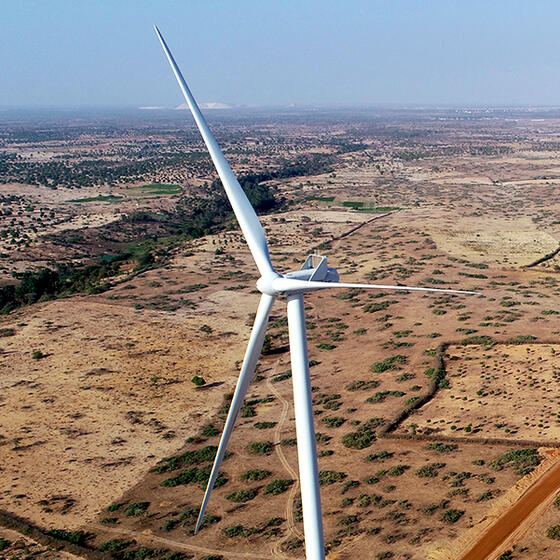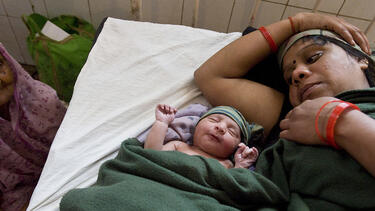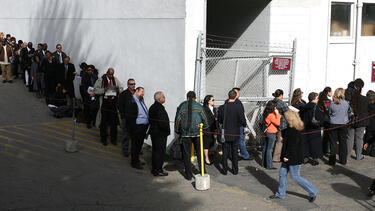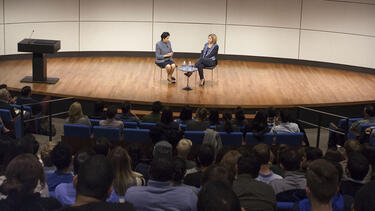Yale Women
To Reduce Risk, Build Trust, in Developing Countries and the U.S.
Mena Cammett ’12 of the World Bank says that the tools used to analyze risk in emerging markets are increasingly relevant to the United States. To mitigate vulnerabilities, build trust.

Can We Eliminate Maternal Mortality?
The number of women who die during childbirth is on the decline, but some regions face significant hurdles in making childbirth safer. Dr. Mary-Ann Etiebet ’03, executive director of Merck for Mothers, discusses the state of maternal health.

How Can We Create an Economics of Hope?
Entrenched inequality is creating a sense of despair for many Americans. Andrea Levere ’83 discusses policies and programs that help more people find opportunities for hope.

What’s the Energy Equation?
What will the world’s use of energy look like in the coming decades, as technological advances revolutionize transportation and push down the price of renewable energy?
Can a Positive Impact Be Profitable?
PepsiCo CEO Indra Nooyi ’80 talks about the company’s Performance with Purpose initiative and the evolving role of sustainability.

How Do You Create the Space for Creativity?
Amy Whitaker ’01 on how organizations and individuals can maximize creativity while controlling risk.

How Do You Plan for Uncertainty?
Kristel Van der Elst ’02 explains how strategic foresight can prepare organizations to be robust whatever the future holds.

Can We Fix the Public Pensions Crisis?
Millions of government workers in the U.S. are relying on pension plans for retirement, and yet these plans are underfunded by at least $1 trillion. Asset manager Ranji Nagaswami ’86 argues that addressing this challenge is about more than assets and liabilities—we have to look at how funds are run and, critically, how they think about risk.
How Do You Market a TV Phenomenon?
Starting in the late 1990s, a series of television shows with a novelistic sweep, many of them produced by cable channels, have redefined the medium; at the same time, technology has given audience members new ways to engage with each other and their favorite shows. As AMC’s executive vice president of marketing, Linda Schupack '92 has had the job of selling two of the biggest hits of TV’s second golden age: Mad Men and Breaking Bad. She talked to Yale Insights about creating great marketing for great stories.
How does Google keep innovating?
In its early days Google didn’t have a marketing team. Now with many brands to support, the company has brought its data-driven approach to its relationship with users and advertisers. Qn magazine spoke with Claire Hughes Johnson, VP of new products, media, and platforms, about the role of marketing in launching new products.
Is the Gates Foundation remaking education
Hilary Pennington '83 is the Gates Foundation's director for special initiatives. She talked with Qn about leading the foundation’s effort to build the country’s social capital by rethinking postsecondary education and the challenges faced by the nonprofit sector in this economic climate.